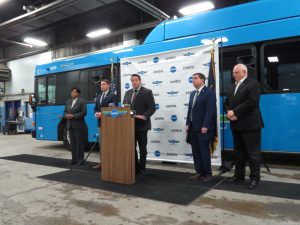SYRACUSE, N.Y. — Crouse Health’s addiction-treatment services (ATS) will use state-grant funding of more than $239,000 to pursue a certification, recruit clinicians, and purchase equipment. The funding will “increase patient access and engagement while supporting the recruitment and retention of clinicians,” per a Crouse Health release. The funding comes from New York State’s opioid-settlement funds. […]
Get Instant Access to This Article
Become a Central New York Business Journal subscriber and get immediate access to all of our subscriber-only content and much more.
- Critical Central New York business news and analysis updated daily.
- Immediate access to all subscriber-only content on our website.
- Get a year's worth of the Print Edition of The Central New York Business Journal.
- Special Feature Publications such as the Book of Lists and Revitalize Greater Binghamton, Mohawk Valley, and Syracuse Magazines
Click here to purchase a paywall bypass link for this article.
 SYRACUSE, N.Y. — Crouse Health’s addiction-treatment services (ATS) will use state-grant funding of more than $239,000 to pursue a certification, recruit clinicians, and purchase equipment.
SYRACUSE, N.Y. — Crouse Health’s addiction-treatment services (ATS) will use state-grant funding of more than $239,000 to pursue a certification, recruit clinicians, and purchase equipment.
The funding will “increase patient access and engagement while supporting the recruitment and retention of clinicians,” per a Crouse Health release.
The funding comes from New York State’s opioid-settlement funds. The state’s Office of Addiction Services and Supports approved the funding through the Comprehensive Treatment Programs grant.
The funding will make it possible for ATS to pursue certification as a comprehensive integrated outpatient-treatment program, Crouse Health said. Crouse currently co-locates an opioid-treatment program and outpatient-treatment program.
With the integrated certification, patients will no longer need to have two primary counselors in order to receive services through both programs. This will “improve the patient experience” and also support ongoing efforts for on-demand access to treatment, Crouse Health contends.
The organization will also use the funding for ATS clinician recruitment, patient education, and the purchase of equipment needed for patient care.



